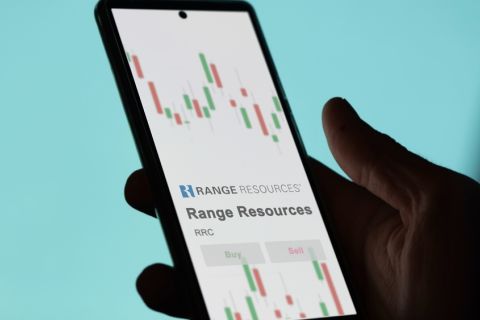Do small-cap exploration and production companies have what it takes to succeed in 2005, or will their outstanding performances last year be hard to repeat? That was uppermost in the minds of about 250 analysts, portfolio managers and individual investors who attended the inaugural Small-Cap Oil & Gas Investment Symposium (OGIS) held in West Palm Beach, Florida, recently. The event, held by the Independent Petroleum Association of America, was patterned after the IPAA's other investment symposia. Some 30 companies presented themselves in conference and one-on-one formats. Their market caps range from $42 million for start-up Dune Energy to $225 million for PetroQuest Energy Inc. to $394 million for Brigham Exploration Co. The lure of small-caps is growth. It typically comes much faster than that shown by their large-cap brethren. PetroQuest, for example, has grown production at a compound annual rate of 43% since 1998, albeit with a few bumps along the way (dry holes and production declines from individual wells) that caused its stock to sink for awhile. That risk has probably been mitigated now: after concentrating solely on the Gulf Coast region of Louisiana, the company has expanded into the Arkoma Basin and East Texas to add longer-lived reserves to its faster-declining offshore and Louisiana assets. The market cap of tiny GMX Resources (Nasdaq: GMXR) grew from $51 million in January to about $74 million at press time, indicating how rapidly fortunes can change for the small-caps. "We estimate GMXR offers 69% upside to our new price target...with only 8.1 million shares outstanding, small changes in our model result in larger swings in cash flow per share and earnings per share," report analysts at Hibernia Southcoast Capital, in New Orleans. But investing in small-caps takes fortitude and an appetite for risk-taking, as the hazards of smaller companies are well known. Often, they have assets and production in only one or two locations, making them vulnerable to geologic or geopolitical problems, or they may lack drilling-rig availability or pipeline access. Take Harvest Natural Resources (NYSE: HNR) for example. After selling its producing assets and acreage in Russia two years ago, the Houston firm is concentrated in Venezuela, where it has been producing oil and gas for many years. However, Venezuela's President Hugo Chavez recently increased royalties in the country and delayed responding to Harvest's latest batch of drilling-permit applications, so the company suspended all drilling last month. Its stock fell 36% on January 18 as a result. Frequent talks with the government are ongoing, and the company hopes to have problems resolved soon, according to chief financial officer Steve Tholen. -Leslie Haines
Recommended Reading
Tech Trends: Halliburton’s Carbon Capturing Cement Solution
2024-02-20 - Halliburton’s new CorrosaLock cement solution provides chemical resistance to CO2 and minimizes the impact of cyclic loading on the cement barrier.
To Dawson: EOG, SM Energy, More Aim to Push Midland Heat Map North
2024-02-22 - SM Energy joined Birch Operations, EOG Resources and Callon Petroleum in applying the newest D&C intel to areas north of Midland and Martin counties.
Range Resources Expecting Production Increase in 4Q Production Results
2024-02-08 - Range Resources reports settlement gains from 2020 North Louisiana asset sale.
Sinopec Brings West Sichuan Gas Field Onstream
2024-03-14 - The 100 Bcm sour gas onshore field, West Sichuan Gas Field, is expected to produce 2 Bcm per year.
TotalEnergies Restarts Gas Production at Tyra Hub in Danish North Sea
2024-03-22 - TotalEnergies said the Tyra hub will produce 5.7 MMcm of gas and 22,000 bbl/d of condensate.





